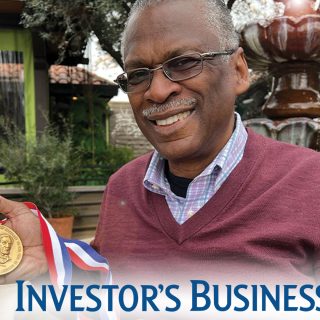Black Founders Largely Shut Out of Atlanta’s Largest VC Deals in 2022

JTEC Energy cited as the recipient of one of the three largest investments in 2022 for Atlanta companies with Black founders.
Zach Armstrong for Atlanta Inno
Barbara Jones-Brown was trying to raise capital for Lilli RNB Inc., her retail technology startup that analyzes return data and detects fraud. One day, she was invited to pitch her company to a room of angel investors in Atlanta.
When it was her time to pitch, nobody paid attention and talked amongst each other, Jones-Brown said. She felt the questions she received were more antagonistic than helpful or insightful. Then, when someone who didn’t look like her entered the room, all eyes were on them and received questions before pitching.
Jones-Brown’s experience with investors is more common in Atlanta than the city would like to admit, said Joey Womack, founder of Goodie Nation, a nonprofit dedicated to helping underrepresented entrepreneurs. In an environment where it feels like someone is not wanted, they won’t perform well and ultimately won’t receive funding.
“As a city, we have to take a deep look at ourselves as not only investors, but other people in the startup community to ask what type of environment we are creating for Black founders,” Womack said. “There’s no reason for someone to walk into a room and not be treated well. That’s not the Atlanta way and it’s not Southern hospitality.”
After months of pitching to investors, Jones-Brown found a partner in Serena Williams’ early-stage venture fund, one that has a specific focus on investing in Black and female founders. The fund led a $3 million round into Brown’s company in April. In June, the company was nominated for best software/financial technology startup in Atlanta Inno’s Fire Awards.
“Fast forward to now, and I’m turning people away,” said Jones-Brown. “A lot of those funds that didn’t care anything about me are coming back now like ‘Oh Barbara, you’re the best thing since sliced bread’ and I think, ‘You could have seen this years ago and got half the company for nothing.’”
Earlier this year, the Atlanta Business Chronicle reported that during a record year of investments in 2021, Black founders received around 12% of the $3.7 billion invested into Atlanta startups with over three-quarters of that going to cloud scheduling startup Calendly.
Heading into the last half of 2022, we took a look at the 25 largest venture capital deals into Atlanta companies, which range from $20 million to $150 million. Three have gone to Black founders. The data is based on PitchBook and National Venture Capital Association’s Venture Monitor reports and Atlanta Inno and TechCrunch reporting.
‘Put into boxes’
The three largest deals for Black founders were for JTEC Energy Inc., founded byLonnie Johnson, the Slutty Vegan restaurant chain, founded by Pinky Cole, and co-working and warehouse space provider Saltbox, founded by Tyler Scriven.
Saltbox raised $128 million in March to expand nationally, TechCrunch reported. JTEC raised $30 million in April, primarily for pilots of its energy-converting device. Slutty Vegan raised $25 million in May aiming to launch nearly 12 more restaurants by year-end, lifestyle magazine Essence reported.
Black founders receiving a paltry amount of capital contrasts Atlanta’s demographic.
The city of Atlanta has a 49.8% African-American population. The greater metropolitan area of Atlanta has the fourth-highest percentage of a Black population in the U.S., according to database company Statista.
“Black founders are put in boxes of what people think we can build. If you’re building something urban and your customer base is Black, people think we can build that,” said Jones-Brown. “Founders that build enterprise applications or sell to big corporations — a lot of investors don’t think I could build a company like that.”
Effects of investor pullback
Investors have largely pulled back from startups as they change their priority from growth to profitability, leading some companies to lay off workers and conserve their cash.
The recessionary climate may provide an ample opportunity to improve the disparity, Womack said. Black founders are used to difficulties in raising capital. Plus, more corporations and firms that invested in underrepresented founders after the social justice protests in 2020. Those investments could be starting to pay off.
“This is an opportunity for Atlanta to focus on startups that have the most potential to rally behind and support,” said Womack. “By 2025, we’ll start to see dividends of investments in diverse founders we’ve seen over the last two years, which hopefully coincides with the recovery of the economy. So the timing is lined up perfect.”
Atlanta startups are generally used to growing with less venture capital money, said longtime entrepreneur and investor Paul Judge.
“Compared to New York or Silicon Valley … we’re in an environment that Atlanta entrepreneurs have been in for decades, which is a capital-constrained environment,” Judge told Atlanta Inno last month.
Atlanta has a growing number of venture capital firms, incubators and programs dedicated to alleviating the funding disparities. That includes Valor Ventures, Zane Venture Fund, Goodie Nation and the Russell Innovation Center for Entrepreneurship. Other entrepreneurial programs, such as the Atlanta Tech Angels, are adding diversity initiatives.








